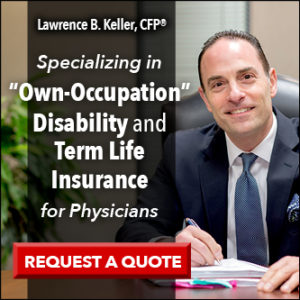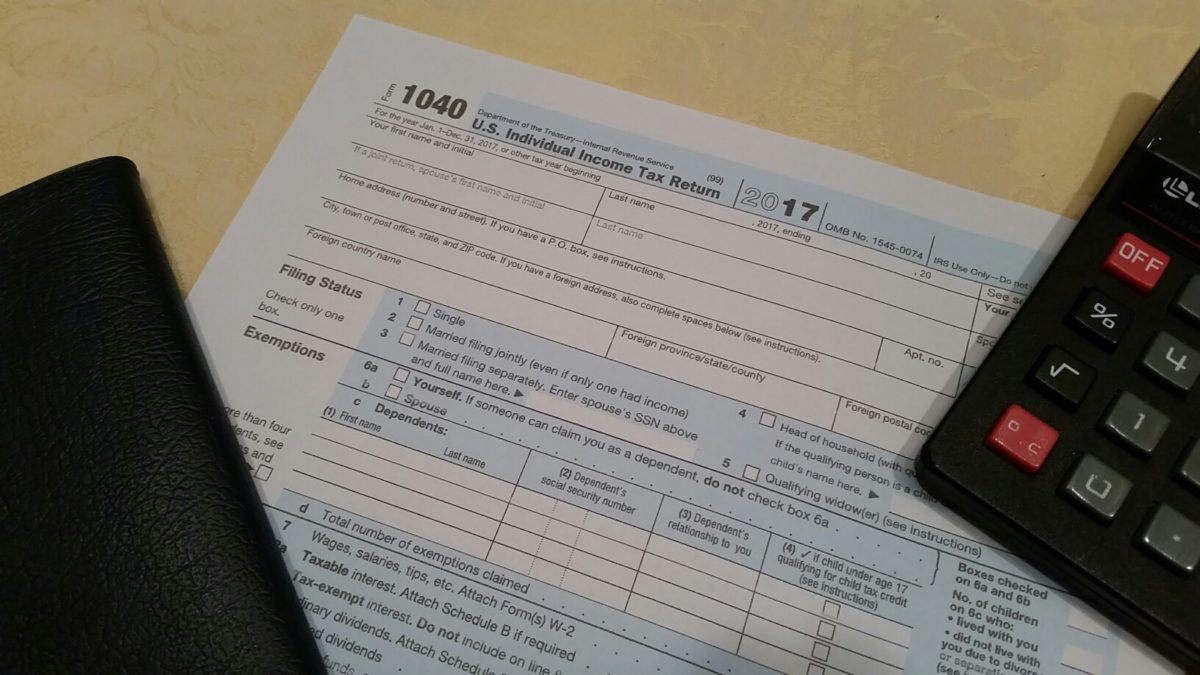Upon retiring from clinical medicine and becoming a full time author/coach (I like to say I’m repurposed), I was uncertain as to the amount of taxes I needed to pay. I have a complicated tax return with several K-1s that don’t surface until March. My final return totals 32 pages for federal and 5 pages for state. After making an estimate of my tax bill at year end, I figured I didn’t need to add any additional taxes to what had already been withdrawn. I worked my final two weeks of clinical medicine as an employee that year, and I thought the taxes withheld from my paycheck would cover my tax bill. Boy was I surprised!
Although I was concerned about whether or not I would owe additional taxes and penalties for not paying quarterly taxes, I took the risk and didn’t make any additional payments. I was pleasantly surprised to find that not only did I not owe additional taxes, but my actual tax bill for the year was zero! All the taxes withheld from those last two weeks I worked were refunded, in addition, I received some tax credits.
The bulk of my retirement savings occurred before the days of Roth IRA accounts, so any distributions I take from my retirement plans, with the exception of my HSA, will be taxable income. I did not take any distributions from my retirement accounts last year. I lived on investments that were outside of my retirement accounts and on my real estate income. Without much earned income, it’s hard for the government to charge me income taxes. Living off saving doesn’t generate taxes.
I did experience large capital gains from selling ownership in medical companies that required the owners to be practicing physicians, which created a forced buy out. I also had a large capital loss from one company I owned that closed.
No income taxes means no deductions
One of the down sides to owing no taxes, is the loss of tax deductions. All those nice Schedule A write offs that exceed the standard deduction can be written off against the tax bill. With a total tax of zero, there is nothing to write off. Now the true cost of giving to charity is the actual value of my gift, the discount for the write off is gone. I did have some income to work with so some of my deductions were used to bring my tax bill to zero, the rest of the deductions were not usable. Those unused deductions will be carried forward to use in the future.
This is an interesting issue. There were years that I made too much money to get all of my Schedule A write offs deducted. This year, I was not able to take all of my Schedule A deductions because I made too little money. I didn’t see that one coming.
Medical expenses are finally deductible
The deduction for medical and dental expenses are limited to only that which exceeds 7.5% of adjusted gross income (line 38 on form 1040). With my high income as a physician all these years, I was never able to deduct any of my medical or dental expenses. Not this year. With a low adjusted gross income, this 7.5% figure was very small. I was able to deduct most of my medical and dental expenses for the first time on Schedule A. Too bad I didn’t have a tax bill to use them against.
Charitable contributions limited
The deduction taken on Schedule A for charitable contributions is limited to 50% of adjusted gross income. I continued to make all my usual charitable contributions, even though I was no longer working and earning an income. Since my adjusted gross income was so low this year, almost half of my charitable contributions were not allowed. These deductions will be carried forward and used in future years, if I can come up with some taxable income to use then against. For those using this deduction as part of their reason for giving, limiting this deduction might dissuade them from making charitable contributions in their retirement years.
Tax credit for my son’s college expense
For the last eight years, I have had one or two children taking college classes. Every year my accountant informed me that I did not qualify for a deduction for my children’s higher education expense because I made too much money. When married and filing jointly, if your adjusted gross income exceeds $180,000, you may not take any education credits. This credit is also known as the American Opportunity and Lifetime Learning Credits.

This year was different. Since my gross income was less than $180,000, I was able to get a $1,000 tax credit for the final year my youngest son attended college. Just in time. Since this was a credit and not a deduction, the government sent me $1,000 even though I owed no taxes. So I got all the money I paid in taxes back as well as an additional $1,000 from this tax credit.
Roth conversions are not so easy
One interesting tax tip is to make Roth conversions in years of low income to fill up the lowest tax brackets. This is to avoid having to take required minimum distributions at a time that income might be higher and putting you in larger tax brackets. By transferring some money from my traditional IRA account and paying low taxes on the transferred amount, I can put that money in a Roth IRA account and never pay taxes on any future gain and not face required minimum distributions. Making the conversion now, while I’m in the zero percent bracket, would save me a lot on taxes.
Once I saw that my tax bill was zero, I realized that I could get some of the conversions done with zero tax, and then fill up the 15% tax bracket for an incredible savings.
Unfortunately, Roth conversions must be done before December 31st. I didn’t know my taxes would be so low until the end of March. This is a real catch 22. You can’t fill up the lower tax bracket until you have your taxes done, which is unlikely to be accurate before December 31st. But you must make the conversion before December 31st. There is no accurate way to make the maximal contribution, unless your only income source is a W-2 wage. If a W-2 wage is the only income source, taxes can be predicted pretty accurately before Dec 31st. Otherwise there is a lot of guessing.
My new tax plan is to have a meeting with my accountant the first week of December and make some estimates to see how much Roth converting I can do, then convert that amount hoping my final tax bill will be close to our estimate. My issue will be the K-1s that will come later with unknown income and/or losses. It was clever of congress to make the Roth conversion date earlier than the tax filing date so people will have a hard time maximizing this move.
The first year you are retired, meet with your accountant in December to calculate your estimated taxes. Determine what you can do to take advantage of the lowered tax bracket you will be in. This will let you take advantage of those Roth conversions if it works out right.
No quarterly tax payments
My second favorite outcome, the first being a tax due of zero, was not needing to make quarterly tax payments next year. If your tax burden is zero, you are not required to make quarterly tax payments the following year. This is nice because next year’s income is unknown. I don’t expect any big capital gains or losses, but my author business is growing and I don’t know how much income that will generate in 2018. Not worrying about making quarterly tax payments is very convenient.
If you do not have significant savings to pay the potential tax bill, make quarterly payments anyway. There is nothing worse than owing money to the government without the ability to pay. The government is very aggressive about getting their money, charging interest and penalties until all has been paid in full. So keep up with your tax payments.
There you have it, my incredible surprise of a zero tax bill. I do not expect I can do that next year, but a guy can dream can’t he? After all, I have all those write offs that will be carried over to next year, when the standard deduction goes up and I may not be able to use them. If you need more retirement information check out my book, The Doctors Guide to Smart Career Alternatives and Retirement.
How about you? Share your story about your first year retired and how your taxes changed. Did anything that happened to me surprise you? Comment so we can all benefit from your tax experiences.


Can you not do a Roth conversion for the previous tax year up until April 15th? I believe you can…
Kurt,
The deadline for making a traditional to Roth IRA conversion is December 31st.
The deadline for making a Traditional or Roth IRA Contribution is the tax filing date, which is usually April 15th of the next year.
Compared with the above this might sound trivial: I keep my license active for the convenience of my ill wife and the occasional friend in need. Lo! it is no longer a deductible expense since I have no professional income against which I can deduct it. And the local medical society does not have a reduced license fee for those of us who are retired!
Wayne,
Sorry to hear about your wife being ill. As a writer for doctors, being a licensed doctor is a factor so I can still deduct it. But I am dropping down to only one license, not the four I had during my locums years. You might consider dropping your membership in the local medical society unless they have functions you like to go to that make it worth keeping the membership. You might also look to see if they would change their policies and allow for a reduced rate for those who are retired. Maybe no one as asked for it yet. I hope you are enjoying your retirement.
Thanks for commenting and sharing your story with us.
Nice article, Cory. Hope you are enjoying your retirement …
Thanks Allison, I am.
I retired last year after I made just enough to fulfill 100% of social security. I have jettisoned all the K-1’s. I have 2 kids in college and the write-offs are glorious. I opened 2 Roths and funded them. The next 5 years I will be Roth converting to the top of the 24% bracket while living on cash to clean out the IRA’s No SS for me till 70. I did an analysis and over the course of the portfolio this produces the greatest total return and end portfolio value because of the tax management but it takes about 20 years to start getting that advantage I had my taxes done in 2 hours this year mind blown! Should be half an hour next year. On the day I fund the Roth I will send the government a check for paid in full taxes since without the K-1’s my taxes become very predictable
Great plan. Wish you a long and happy retirement
Yes. I retired March 2017 from VA primary care at age 60.
It was a big year reducing my stock/bond allocation based on William Berstein’s advice “when you’ve won the game stop playing” and similar quotes; and forward of Johnathan Clements “How to Think About Money” . Eg “for the retiree, stocks are Chernobyl risky”. (which I take to mean, the bill pay money better be in bonds, eg TIPS ladders)
The surprise? The 3.8% extra tax on investments…and though one thinks of it being on investments, it is triggered by AGI. Being in medicine, one cannot really say anything out loud about learning from one’s mistakes but yep, this was a lesson!
And beware next year b/c it is still on the books.
Brian,
Congratulations on the retirement. You picked a good age. I hope you are in good health so you have some years of fun left in you.